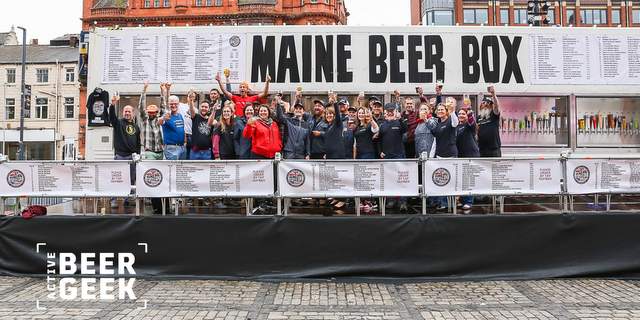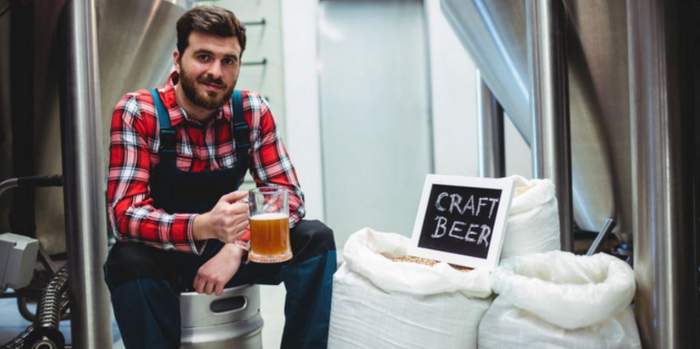
It has all the makings of a Hollywood mafia movie. Unidentified individuals broke into the SweetWater Brewery on Ottley Drive in Atlanta this June, hooked truck tractors to sitting trailers full of SweetWater beer and hit the road.
For beer lovers, we can tease a happy ending – as much of the $90,000 haul of beer was recovered. Unfortunately, after its recovery, SweetWater declared the beer unfit for sale due to quality control considerations.
This incident brings to attention the risk of theft breweries face — whether it’s from outsiders, or more commonly, brewery employees taking advantage of a golden opportunity. In fact, while it is unclear at this point if the SweetWater incident was an inside job, many brewery thefts — like in other retail sectors — are the result of employee dishonesty.
In this article, we look at common types of theft affecting breweries, including employee dishonesty, keg theft and cargo/transit theft. We also discuss how a brewery can reduce its risk exposure and what to look for in an insurance policy to make sure the brewery has the right coverage if it were to fall victim to theft.
Thirsty Employees
Employee theft is responsible for $18 billion or 43 percent of lost revenue for retailers in the U.S., according to a recent article from Fortune, which highlighted facts from the Global Retail Theft Barometer. In all, U.S. retailers lose roughly $42 billion annually from shrinkage – missing or stolen merchandise.
Employees may leave the gate open for a friend to quietly come in and smuggle out cases or kegs of beer. Breweries may not realize it, but regular theft insurance does not cover an event like this. Employee dishonesty, as it is known in the insurance industry, has its own coverage and it is a coverage that breweries want to make sure is included in their insurance policies. In many cases, the employee may not blatantly steal a truckload of beer, but they may swipe a few six-packs, brewing equipment, tools, kegs or have a little extra in the tasting room without keying the sale into the register.
Valuable Kegs
Keg theft is another risk exposure for breweries. According to the Beer Institute, a trade association that represents small and large U.S. brewers, each year more than 350,000 kegs are lost to the tune of a $50 million cost to the industry.
The empty kegs are valuable to thieves to sell as scrap metal or otherwise, particularly as new kegs sell for around $130 and a standard keg deposit now ranges from $10 to $50. From an insurance perspective, it is important for breweries to know the value of owned or leased kegs and to understand whether the keg is covered when it leaves the brewery premises.
The Cargo Transit Blame Game
Transit is also a common area where theft can impact a brewery’s bottom line. An event similar to the SweetWater incident occurred at a Florida truck stop in October 2014 when thieves took off with a tractor trailer truck full of Miller High Life beers – 9,700 four-packs, the Atlanta Journal Constitution reported.
During transit, brewers cannot assume the onus is on the trucker if the beer cargo goes missing. Insurance coverage for beer missing during transit is not automatic. Brewery owners should have a written agreement with the trucking company, ideally transferring all risk to the trucking company and ensuring the trucking company has a sufficient limit of insurance to cover a potential loss. Breweries can also look into transit insurance coverage to make sure their beer is covered while it is on the road.
Tapping the Right Insurance Coverage
With risk exposures like this and the potential to lose $90,000 worth of beer as in the SweetWater incident, breweries need to make sure they have comprehensive insurance. Often the best policies can be found at a specialty insurer, focused on the beer, wine or spirits industry.
Specialty brewery insurers can also provide risk management tips to help breweries limit their risk exposure. While finding the right insurance partner is key to protecting a brewery’s assets, there are steps breweries can take to protect themselves, including:
• Train employees to be aware of employee theft and provide anonymous hotlines to report theft;
• Protect other merchandise with cages;
• Install security cameras and keep tapes for 30-60 days in case a loss is not immediately discovered;
• Install alarms and sufficient lighting;
• Paint numbers on tops of trailers or employ only those with aerial identifiers;
• Install blocking mechanisms on truck starters;
• Insist on written agreements with truck operators/distributors – transferring risk to them if possible;
• When brewing a higher quality beer, make sure insurance limits are still sufficient for the increased value of the beer.
Unlike a general insurer, specialty insurers know the brewery business and the intricacies of a comprehensive coverage plan encompassing everything from the brewing process, the value of higher quality beer, leakage, theft, equipment breakdown, employee dishonesty and transit, among other things.
Brewers should be able to spend their time focusing on brewing quality beer. Finding an insurance partner they can trust to ensure their brewery has comprehensive coverage at a competitive price will allow brewers to do what they do best – keeping our pint glasses filled.
This timely column was sent over from Paul Martinez, Brewery Pak Program Manager, Pak Insurance Programs. Martinez has 20 years of commercial insurance experience and 6 years of experience underwriting breweries. He travels throughout the U.S. and Canada visiting breweries providing risk management and loss prevention services for the brewery industry.





Lessons learned from a $90K beer heist: Do you have the proper theft controls in place? https://t.co/cqXP6HN3LU https://t.co/QGNW3i9KJ9
@CraftBrewingBiz discusses theft controls and insurance in the brewing industry https://t.co/Q4a674mLPX required reading #liquorlaw #bcbeer
RT @CraftBrewingBiz: Lessons learned from a $90K beer heist: Do you have the proper theft controls in place? https://t.co/Vis079ej0T https:…
Lessons learned from a $90K beer heist: Make sure you have the proper theft controls in place. https://t.co/Ccs5ySiX1I
Charlie Reeves liked this on Facebook.
RT @CraftBrewingBiz: Lessons learned from a $90K beer heist: Do you have the proper theft controls in place? https://t.co/8xGHb8N7eG
#CraftBeer #CraftBrewing #Beer #BeerBiz Lessons learned from a $90K beer heist: Do you have the proper theft co… https://t.co/9eON9snx0T
Lessons learned from a $90K beer heist: Do you have the proper theft controls in place? https://t.co/Mvc47Er9Ny via @craftbrewingbiz
RT @CraftBrewingBiz: Lessons learned from a $90K beer heist: Do you have the proper theft controls in place? https://t.co/8xGHb8N7eG
where I work we send and receive very expensive marine electronics. We leave nothing in any trailer overnight. Once the trailer is loaded, it ships that day so that the shipper is responsible. And inbound freight is off loaded before we go home. Leaving that much value sitting on a dock, unguarded, is like leaving all your most valuable stuff in the front seat of your car.
RT @CraftBrewingBiz: Lessons learned from a $90K beer heist: Do you have the proper theft controls in place? https://t.co/8xGHb8N7eG
RT @crsimp01: Lessons learned from a $90K beer heist: Do you have the proper theft controls in place? https://t.co/MGqT8s220F via @craftbre…
Jeff Platt liked this on Facebook.
Lessons learned from a $90K beer heist: Do you have the proper theft controls in place? https://t.co/MGqT8s220F via @craftbrewingbiz